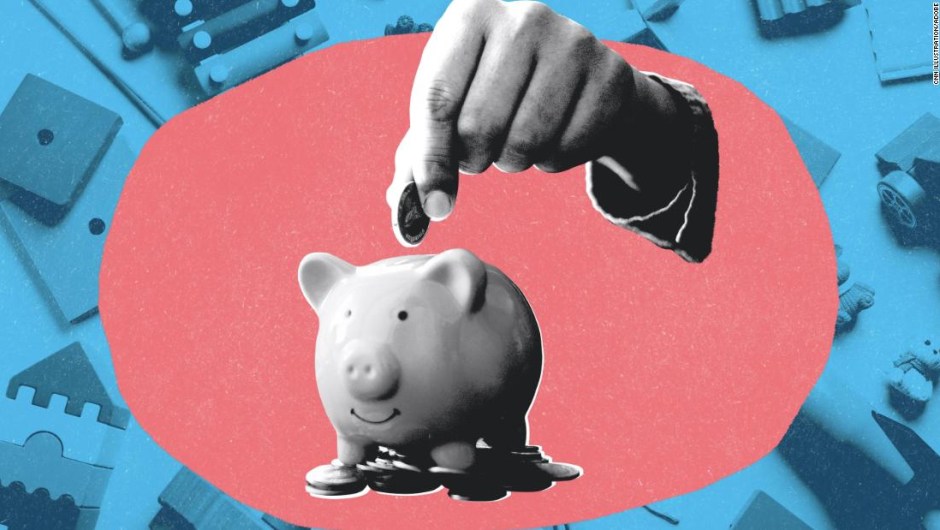(CNN) -
Preparing for a baby is not limited to choosing the name or organizing the crib.
It also requires a lot of financial planning.
The estimated cost of raising a child from birth to 17 years is an average of US $ 233,610, or US $ 12,189 a year, for a middle-income family (with two children) in the US, according to data published in a report from the Department of Agriculture in 2017.
"It's easy to get carried away with the emotions of pregnancy and ignore the practicalities," said Deborah Meyer, a certified financial planner and CEO of WorthyNest.
"It is never too early to start financially planning for a new baby."
Here are four financial steps you can take to prepare for the arrival of your baby:
1. Create a budget for the baby
Having a budget when you are expecting a baby is one of the most important financial steps you can take.
When creating a budget, be realistic about your expenses and keep it flexible.
Researching in advance how much certain things will cost can go a long way.
advertising
Childcare is a good starting point, as it is often the largest expense in many family budgets.
According to a 2019 report by the Center for American Progress, a group of progressive experts, the cost of childcare averages 14% of the income of working middle-class American families with two children, who earn between $ 50,000 and US $ 100,000 per year.
It is more than double that percentage for a lower-income family, which represents an average of 35%.
Also, be sure to factor in pre- and postpartum expenses.
That could include medical expenses, prenatal classes, and baby-related items like diapers and car seats.
In many cases, family members or friends can help provide basic items, such as clothing or other expensive baby items, such as a stroller.
Ordering used items is another way to save on clothing, as well as items like toys and furniture.
However, even if those purchases are covered, Meyer suggests allocating at least $ 150 a month in additional costs for the baby.
By doing so, you can provide your family with a healthy financial cushion to cover other recurring or unexpected expenses associated with a baby.
How to manage finances after the death of a loved one
2. Talk about money and make a plan with your partner
Many companies offer a form of maternity or paternity leave.
You should check with your employer about the type of family leave plans they offer and the details of your health care coverage.
Then talk to your partner about the next steps.
"Start thinking about what those first few months would be like," said Danna Jacobs, certified financial planner and founding partner of Legacy Care Wealth.
Decide whether one or both parents will stay home or work.
From there, you can get a better idea of your household's disposable income and cash flow during the first few months of your baby's life.
You should also consider the retirement contributions from your home and whether you should reduce or increase that amount based on your budget.
Prioritizing paying off high-interest debt, like a credit card, and finalizing any plans to finance a 529 savings plan for your newborn are other essential steps to consider.
In cases where talking about finances with your partner is uncomfortable or difficult, try working with a financial professional, such as a financial advisor or counselor, to stay on track with your financial goals and budget.
"Navigating money conversations with your partner can be awkward, even when you're not expecting a baby," Meyer said.
"A good financial planner or advisor can help ease the tension if every conversation about money ends with an argument."
Working with a financial professional can also help you cope with major lifestyle changes, such as buying a safer car or moving to a larger space to make room for a newborn.
3. Organize your savings
Having the right savings can prepare your new family for financial success.
This usually takes the form of an emergency fund, which financial experts suggest should consist of three to six months of living expenses.
Add a baby to the equation and that may be more than you needed before.
Since your expenses will change, you will want to account for it by increasing the amount of your emergency savings.
To arrive at a suitable target number, consider monthly expenses such as daycare, baby food, mortgage, and car payments.
"It's always good to get an idea of what that number looks like and start saving up front before you have the extra cash flow from baby expenses," Jacobs said.
How to start a healthy morning routine and stick with it
4. Keep a thrifty mindset
In addition to ordering inherited clothing, other ways to save may include breastfeeding (if possible), opting for multifunctional baby items, buying second-hand items or clothing, making your own baby food, and having relatives babysit at home. instead of paying for outside child care.
Another way to save is to seek advice from other parents.
"The biggest mistake is not talking to other parents of young children," he said.
"They are a little past the newborn sleep deprivation stage of parenthood, but they are close enough to remember the additional financial expenses associated with a baby."
baby


/cloudfront-eu-central-1.images.arcpublishing.com/prisa/GFO75MQJLZBQLK3HH6W3QA4RMQ.jpg)






